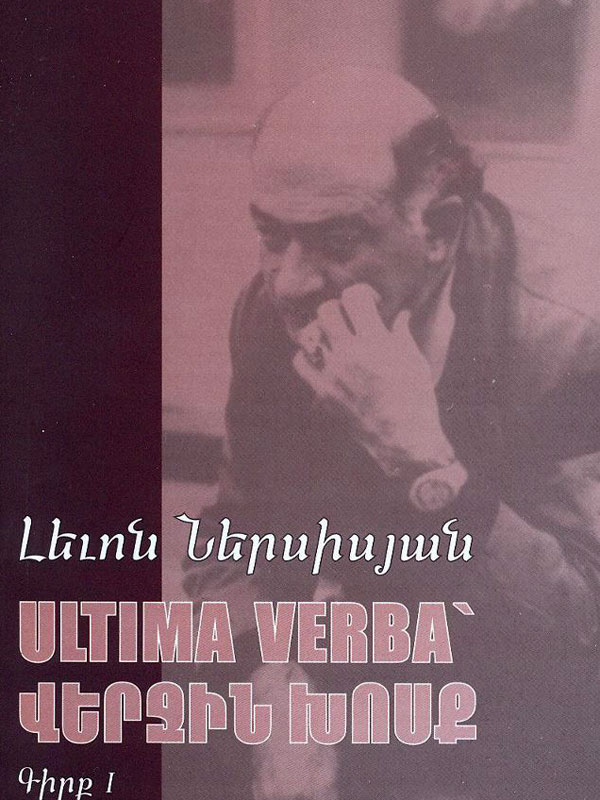“At the time when I was young, I wanted to entitle ULTIMA VERBA, which means in Latin “the last word,” one of the books that I intended to write but haven’t written yet,” Levon Nersisyan, a famous intellectual and a unique lecturer said at the time. This wish has been fulfilled by his students Shushan Sirunyan and Ruzan Tonoyan. And now, ULTIMA VERBA (“the last word”) with the Nersisyan lectures is on the reader’s table. Moreover, Levon Nersisyan’s voice – the CD with the lectures – is included in the booklet.
It is really a great luck to listen to Levon Nersisyan who was one of the most inspiring people in the university, but the university administration didn’t offer an opportunity to students to give the last honors to the beloved lecturer in Yerevan State University.
I remember that we, students of the Philological Faculty couldn’t find a seat in the biggest auditorium on the second floor, because it was “conquered” by students of other universities who had played hooky to come and “enjoy” Levon Nersisyan. The door of the auditorium would open and Levon Nersisyan would come in with handsome and aristocratic appearance, sparkling eyes, a ring with a green stone, with a cane in his hand and would walk down the stairs to the department, which would be the focus of our attention for the next 80 minutes.
I read with pleasure in the newly-published book the idea about a human being expressed by Levon Nersisyan during a lecture at the time, “They say the man is Homo sapiens, i.e. a wise man. Let me ask you a question and what are stupid people, aren’t stupid people human beings? They are…. As if wisdom distinguishes the man from animals – it is a very shaky answer. They say the man differs from other classes in senses. As if the man can love, hate, as
if the animal doesn’t. Whereas what love is it, when people have killed, betrayed each other for thousands of years and there are so many good small animals, which have never done anything to each other….”
We, students, would become excited when Levon Nersisyan would remember a story about his father, great actor Hrachya Nersisyan during the lectures. One of them has been included in this book, “My father who was an actor was a man loved by the people. There was a poor performance at Sundukyan Theater. My father had to play the part of a German officer. That play was called Engineer Sergei. I don’t remember who the author was, but he was stupid. These are things of the past. In a nutshell, a German officer. The war had just ended and when this man [Hrachya Nersisyan, G.H.] would appear on the stage – I have told you he was loved – the whole audience would applaud loudly as a rule. OK, one performance, two…. At the third performance they took that part from him. He asked what had happened, whether he had played the part of the German badly. They asked whether he hadn’t understood. The war has just ended; a fascist appears on the stage and loud applause….”
As any subject, the story of Athena’s birth from Zeus’s forehead is different when it is told by Levon Nersisyan, “Zeus, i.e. the most powerful among humans and men, a god and the king of gods, gives birth to Athena, she comes out of his forehead ready and even armored. What can you bear, a 3.5kg kitten, that is what a woman can bear and when a man bears, he gives birth to Athena….”
Gohar HAKOBYAN
























































